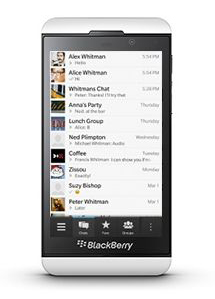
网站公告
more- Six Safety T... 25-04-23 13:20
- Six Safety T... 25-04-23 13:19
- How To Look ... 25-04-23 13:18
- Get Car Insu... 25-04-23 13:18
The Psychological Impact Of Overt Messaging
AleidaDelacruz30 2025.04.22 21:17 查看 : 2
In today's digital age, our lives are disrupted by notifications from our smartphones. Among the numerous messaging apps we use to stay connected with friends and whatsapp网页版登录 family, one of the leading messaging platforms. While it has significantly impacted how we share information, the constant influx of notifications from the app can have a profound impact on our mental health.
One of the primary concerns is the Dopamine Loop, a psychological phenomenon where our brains become accustomed to receiving frequent notifications, releasing a flood of the neurotransmitter associated with pleasure each time. Dopamine is a neurotransmitter associated with pleasure and reward, and our brains begin to feel a strong desire for this stimulus. leading to feelings of anxiety when we don't receive messages.
Another significant issue is the fear of missing out (FOMO). With the constant stream of notifications from WhatsApp, users often experience anxiety about staying connected and not skipping any important updates. This perpetual anxiety can have severe consequences on our psychological state, making users feel pressured to constantly stay connected, even when it's not necessary or healthy.
Moreover, constant notifications can interfere with our rest and relaxation. The sudden jolt from an incoming message can cause us to wake up feeling refreshed but also anxious. The resulting sleep deprivation can have adverse effects on our overall well-being, making it challenging to perform daily tasks and activities.
Apart from these immediate effects, individuals may also experience a decrease in their ability to focus and engage in meaningful conversations. Continuous interruptions can weaken our concentration. affecting productivity at work and making it harder to build strong relationships. Moreover, constant notifications can make us feel like we are living in a state of hyper-arousal. causing unnecessary stress and anxiety.
One crucial aspect to consider is the exponential growth of group chats on WhatsApp. These can be particularly overwhelming, with numerous messages flooding the notification stream. group chats often feature numerous, competing conversations. inducing stagnation and a lack of focus when attempting to contribute or respond to individual messages.
Furthermore, the lines between professional and personal relationships become increasingly blurred with WhatsApp notifications. Work colleagues and managers may use the platform for official communication, making it challenging. making it challenging for individuals to fully disconnect from work responsibilities. This overwork culture contributes to burnout and marital relationship breakdowns.

One of the primary concerns is the Dopamine Loop, a psychological phenomenon where our brains become accustomed to receiving frequent notifications, releasing a flood of the neurotransmitter associated with pleasure each time. Dopamine is a neurotransmitter associated with pleasure and reward, and our brains begin to feel a strong desire for this stimulus. leading to feelings of anxiety when we don't receive messages.
Another significant issue is the fear of missing out (FOMO). With the constant stream of notifications from WhatsApp, users often experience anxiety about staying connected and not skipping any important updates. This perpetual anxiety can have severe consequences on our psychological state, making users feel pressured to constantly stay connected, even when it's not necessary or healthy.
Moreover, constant notifications can interfere with our rest and relaxation. The sudden jolt from an incoming message can cause us to wake up feeling refreshed but also anxious. The resulting sleep deprivation can have adverse effects on our overall well-being, making it challenging to perform daily tasks and activities.
Apart from these immediate effects, individuals may also experience a decrease in their ability to focus and engage in meaningful conversations. Continuous interruptions can weaken our concentration. affecting productivity at work and making it harder to build strong relationships. Moreover, constant notifications can make us feel like we are living in a state of hyper-arousal. causing unnecessary stress and anxiety.
One crucial aspect to consider is the exponential growth of group chats on WhatsApp. These can be particularly overwhelming, with numerous messages flooding the notification stream. group chats often feature numerous, competing conversations. inducing stagnation and a lack of focus when attempting to contribute or respond to individual messages.
Furthermore, the lines between professional and personal relationships become increasingly blurred with WhatsApp notifications. Work colleagues and managers may use the platform for official communication, making it challenging. making it challenging for individuals to fully disconnect from work responsibilities. This overwork culture contributes to burnout and marital relationship breakdowns.
?? 0
Copyright © youlimart.com All Rights Reserved.鲁ICP备18045292号-2 鲁公网安备 37021402000770号

